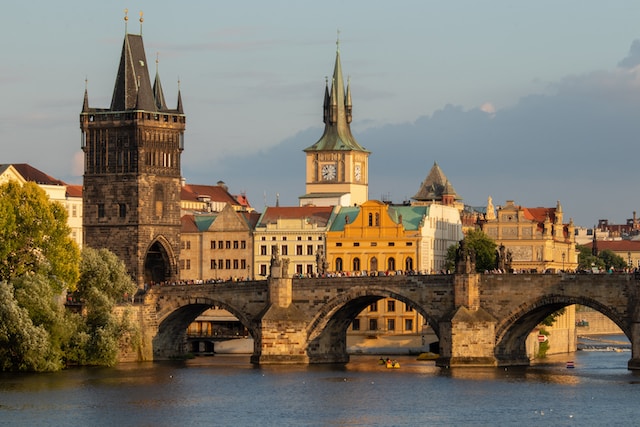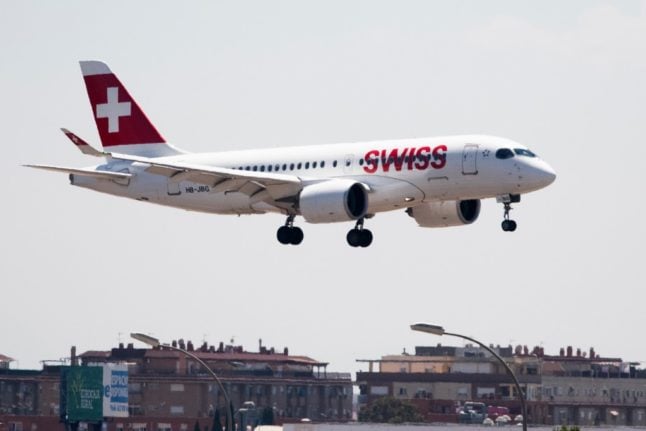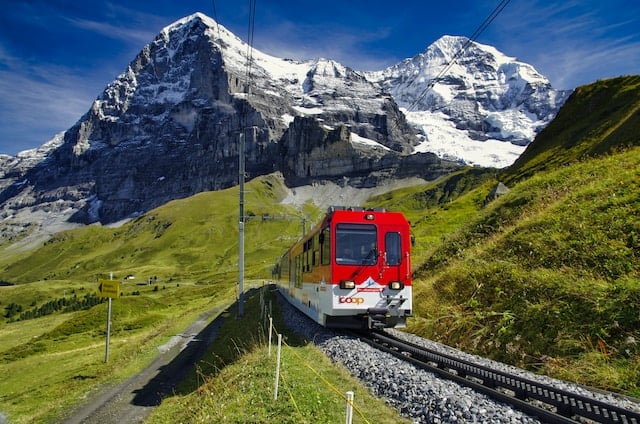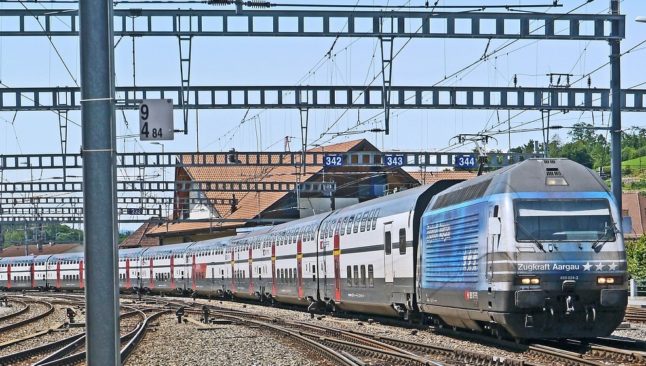Zurich to Prague
One of the latest additions to SBB/CFF/FFS’s new timetable is a direct night train link from Zurich’s main railway station to Prague (Praha) hlavní nádraží.
You can now hop on the EuroNight from Zurich every evening at 7.59pm or 9.40pm and snooze your way – the journey takes 13.39 hours – to the Czech Republic’s romantic capital. The trains arrive the next morning at 9.35am and 10.45am.
If you’re looking to take the night train to Prague, we recommend investing in Interrail’s One Country Pass. The pass lets you travel to the city – and many others – for a reasonable price. Adults aged 28-59 pay 97 francs to travel to Prague from Zurich for 3 days within the same month.
For those preferring a shorter albeit less comfortable day trip, you can also opt for a coach ride instead. Companies such as FlixBus stop at Zurich Bus Station several times a day and offer both direct and non-direct trains to Prague. Direct trains will take between 9.25 to 10.35 hours, with a roundtrip setting you back 124 francs.

While flights remain your fastest and most convenient way to get around Europe, you can only reach Prague via a direct flight with SWISS. The flight duration is 1h 20mins and a return ticket travelling Economy Light costs 169.55 francs, making this the costliest travel option.
Basel to Milan
The city of Milan is considered a true fashion metropolis and many Swiss residents are drawn across the southern border to indulge in a shopping spree every year.
Luckily, you can reach Milan by coach from Basel’s main railway station up to three times a day. The direct journey takes between 4.55 and 5.45 hours and costs a reasonable 100 francs.
READ MORE: Switzerland mulls new direct Basel – London Eurostar connection
Alternatively, you can choose the more comfortable option and catch a train from Basel SBB to Milan with the One Country Pass six times daily. The trip will take circa 4 hours.
Unfortunately, there are no direct flight connections between Basel and Milan, though EasyJet will get you there with one stopover in Naples for 250 francs return.

Geneva to Paris
Not surprisingly, getting to Paris from Geneva is fairly simple. Trains depart Gare de Genève for Paris Gare de Lyon every two hours, and your mini voyage will take you around 3h 20mins. Moreover, France is also covered by Interrail’s One Country Pass – remember, buying a spontaneous one-way ticket to Paris from Geneva can cost upwards of 119 francs.
READ ALSO: Which European cities can you reach with direct trains from Switzerland
If you’re looking to save your money for sightseeing and spend less on travel, you may, however, want to visit the capital by coach. Though slower – the trip will take between 6.35 to 11.05 hours – a one way ticket can be as cheap as 30 francs if you book early.
Reaching Paris via plane is by far your easiest (and cheapest) option. The hassle of travelling to the airport aside, flights between Geneva and Paris only take 1h 15mins and you can snag a last-minute return trip with EasyJet for just 91 francs.

Bern to Frankfurt
Travel to Frankfurt by coach from Bern’s main railway station takes just under 7 hours and trains leave Bern SBB twice a day. You can buy a one-way ticket to Germany’s financial hub for as little as 36 francs if you plan your trip ahead of time.
For travel to Germany by train, it makes sense to purchase the German Rail Pass, which you can buy at any staffed SBB counter in Switzerland. The pass will enable you to travel Frankfurt and beyond for 3 days within the same month and costs around 197 francs.
Though Bern is home to Bern Airport, it only offers passengers seasonal trips to Lübeck via Lübeck Air. Travellers would then need to hop on a connecting flight to Frankfurt or opt for a train or coach instead.



 Please whitelist us to continue reading.
Please whitelist us to continue reading.
Member comments